
Tiko Beach: The Hidden Gem of Cameroon
Nestled along the coastline of the South West Region, Tiko Beach is an unspoiled paradise waiting to be discovered. This charming beach offers visitors a serene escape from the hustle and bustle of city life. With its golden sands and crystal-clear waters, Tiko Beach is perfect for sunbathing, swimming, and relaxing under the warm African sun. Tiko Beach is not just about sun and sand; it is a haven for nature lovers. The surrounding mangroves and lush vegetation provide a stunning backdrop, making it an ideal spot for photography and bird watching. The local fishermen add to the charm, as they bring in their daily catch, offering a glimpse into the traditional way of life. The beach is also a gateway to exploring more of Cameroon's natural beauty. Nearby attractions include Mount Cameroon, the tallest mountain in West Africa, and the Limbe Botanic Garden. Whether you are an adventure seeker or someone looking to unwind, Tiko Beach has something for everyone.
Local tips in Tiko Beach
- Visit early in the morning to avoid the heat and crowds.
- Bring cash as local vendors and small businesses may not accept credit cards.
- Hire a local guide for a more in-depth experience and to explore nearby attractions.
- Respect local customs and traditions, especially when interacting with fishermen.
- Pack insect repellent to protect against mosquitoes, especially during the rainy season.
Tiko Beach: The Hidden Gem of Cameroon
Nestled along the coastline of the South West Region, Tiko Beach is an unspoiled paradise waiting to be discovered. This charming beach offers visitors a serene escape from the hustle and bustle of city life. With its golden sands and crystal-clear waters, Tiko Beach is perfect for sunbathing, swimming, and relaxing under the warm African sun. Tiko Beach is not just about sun and sand; it is a haven for nature lovers. The surrounding mangroves and lush vegetation provide a stunning backdrop, making it an ideal spot for photography and bird watching. The local fishermen add to the charm, as they bring in their daily catch, offering a glimpse into the traditional way of life. The beach is also a gateway to exploring more of Cameroon's natural beauty. Nearby attractions include Mount Cameroon, the tallest mountain in West Africa, and the Limbe Botanic Garden. Whether you are an adventure seeker or someone looking to unwind, Tiko Beach has something for everyone.
When is the best time to go to Tiko Beach?
Iconic landmarks you can’t miss
CanalOlympia Bessengué
Experience the latest blockbusters and local films at Douala's premier movie theater and cultural hub in the heart of Cite Chardy.
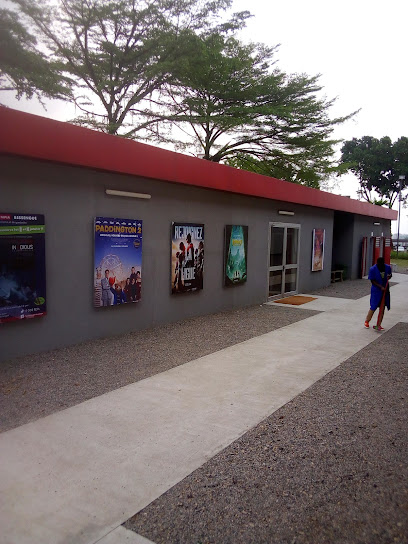
ONOMO Hotel Douala
Experience modern comfort and convenience at ONOMO Hotel Douala, your ideal base for exploring Cameroon's economic capital.
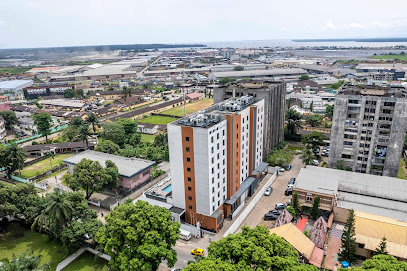
Cameroon Reunification Monument
A symbol of unity in Yaoundé, commemorating the reunification of Cameroon and its diverse cultural heritage.

Bois Sainte Anastasie
Escape to nature in the city center at Bois Sainte Anastasie, Yaoundé's charming park with art, river views, and tranquil ambiance.
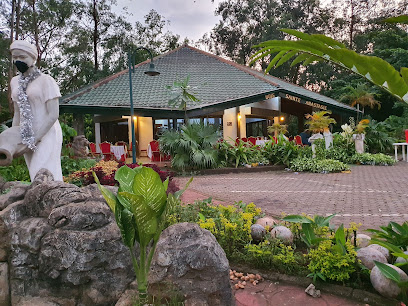
Best Western Plus Soaho Douala Airport
Modern comfort and convenience near Douala International Airport, with free shuttle, pools, and on-site dining.
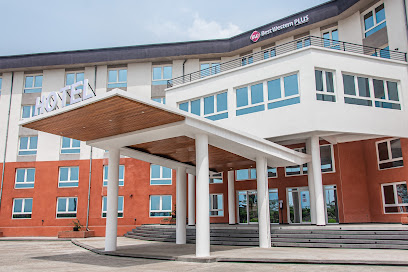
Hotel Seme Beach Resort& Spa
Experience coastal bliss at Hotel Seme Beach Resort & Spa in Limbe, Cameroon, with stunning views, relaxation, and adventure.
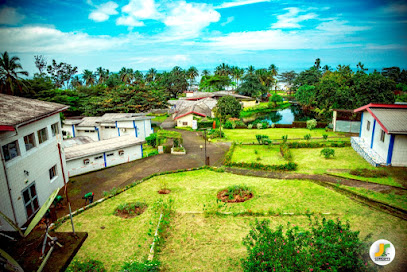
Ayos Centre
Discover Cameroonian art and culture at Ayos Centre in Foumban, a vibrant hub showcasing traditional and modern artistic expressions.
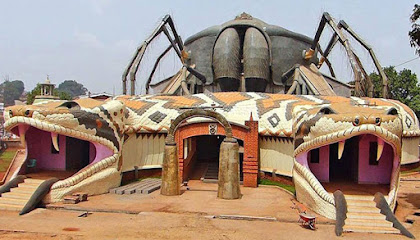
Big Bite
Experience the vibrant flavors of Limbe at Big Bite, where local and international cuisine meet the stunning views of Down Beach.
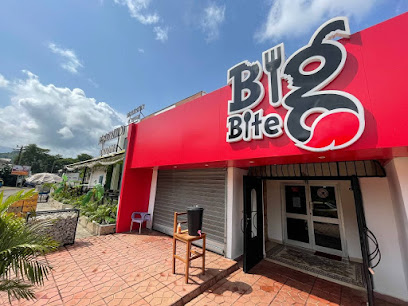
Doual'art
Explore contemporary African art at Doual'art in Douala, Cameroon. Discover exhibitions, workshops, and cultural events in a vibrant and inspiring setting.
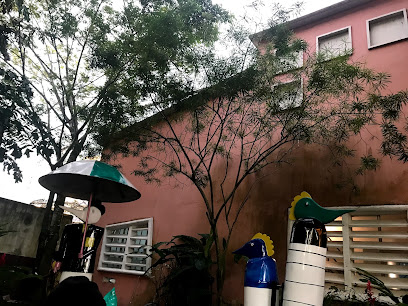
ALCEF PARK
Experience thrilling rides, serene gardens, and family fun at ALCEF PARK, Limbe's premier amusement destination.
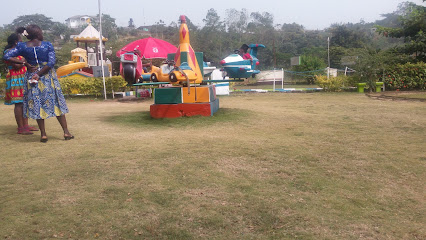
Mile 4 (Wututu Park)
Escape to the serene beauty of Mile 4 (Wututu Park) in Moliwe, Cameroon, for relaxation, nature walks, and a taste of local culture.
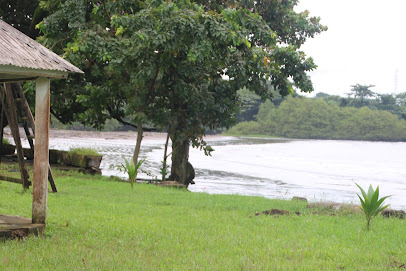
Limbe Botanic Garden
Discover Cameroon's botanical treasures at Limbe Botanic Garden, a historic oasis of biodiversity, conservation, and serene natural beauty.
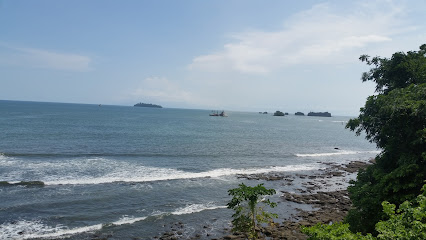
Statue of Charles Atangana
Discover the Statue of Charles Atangana in Yaoundé, a landmark that embodies Cameroon's colonial history and cultural identity.
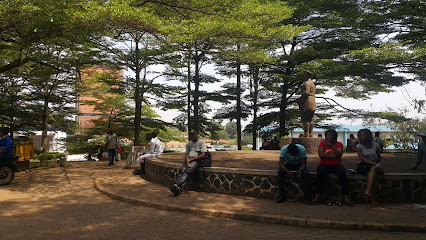
Park Hotel Miramar
A tranquil coastal hotel in Limbe, Cameroon, offering easy access to the Limbe Botanical Garden and other local attractions.

Musango Beach Hotel
Experience a relaxing beachfront vacation at Musango Beach Hotel in Limbe, Cameroon, with stunning views and easy access to local attractions.
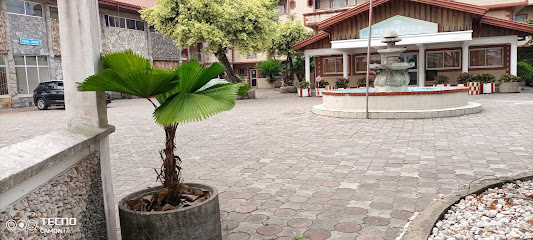
Unmissable attractions to see
Cathedral of St Peter and Paul Bonadibong
Discover the architectural beauty and spiritual serenity of the Cathedral of St Peter and Paul Bonadibong in Douala, Cameroon.
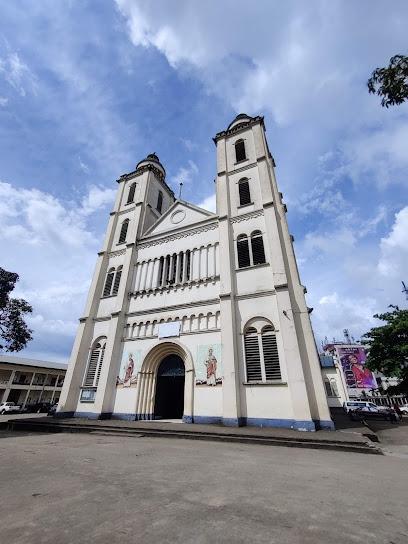
Maritime Museum Of Douala
Explore the Maritime Museum of Douala to uncover the rich history of Cameroon’s seafaring culture and maritime trade.
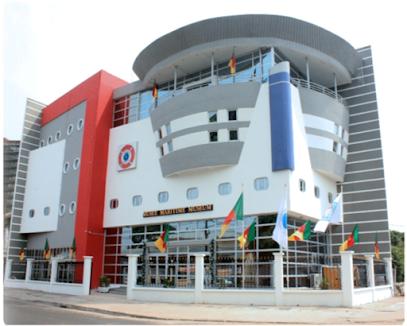
Doual'art
Experience the vibrant pulse of contemporary African art at Doual'art, a must-visit cultural center in Douala, Cameroon.
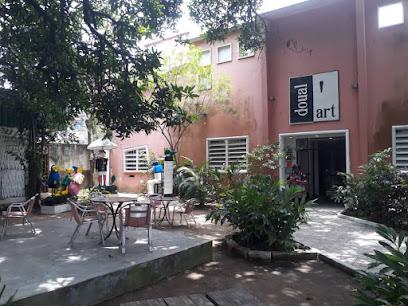
Camertour.org
Explore Douala with Camertour, the premier sightseeing agency offering personalized tours and unforgettable experiences of Cameroon’s rich culture.
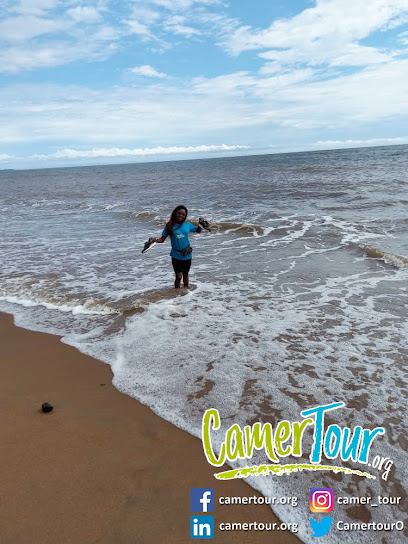
Artisanal Market
Explore Douala's Artisanal Market: A vibrant hub of local crafts, culture, and culinary delights in the heart of Cameroon.
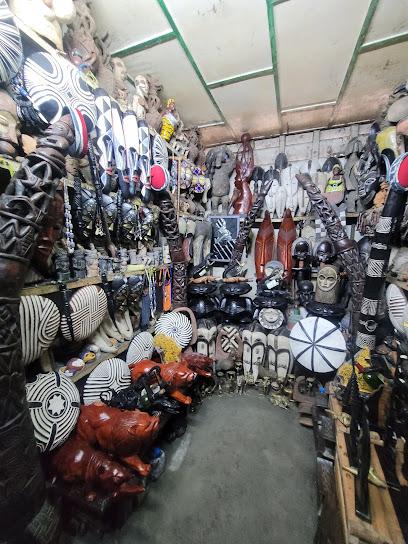
SCI Dibamba Beach
Explore the beautiful SCI Dibamba Beach in Douala, a serene public beach perfect for relaxation, local culture, and stunning sunsets along the Atlantic coast.
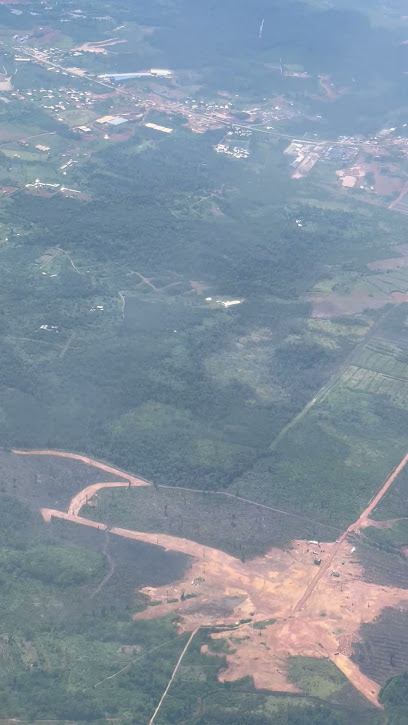
Monument Nachtigal
Explore the historical essence of Douala at Monument Nachtigal, a tribute to Cameroon’s colonial past and cultural heritage.
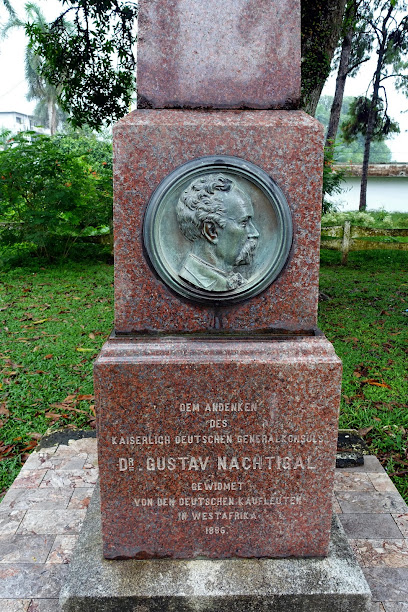
NGEME BEACH
Explore the stunning Ngeme Beach in Limbe, Cameroon, a perfect blend of relaxation and adventure with breathtaking views and local charm.
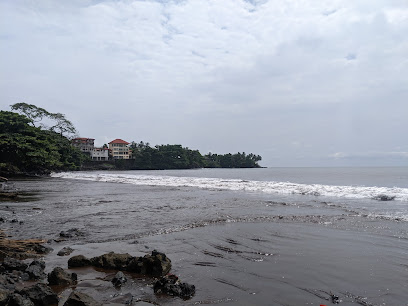
Essential places to dine
Restaurant Kajazoma
Experience authentic Cameroonian cuisine at Restaurant Kajazoma in Yaoundé – where flavor meets tradition in every dish.
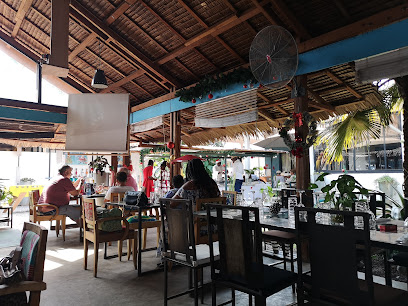
Le Safoutier Restaurant
Experience exquisite dining at Le Safoutier Restaurant in Yaoundé - where local flavors meet international elegance.
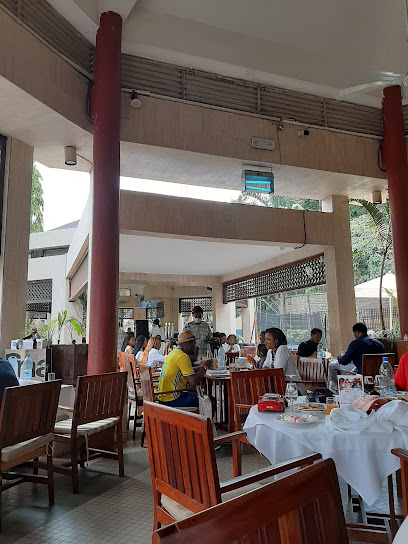
La Salsa Restaurant
Experience authentic Cameroonian cuisine at La Salsa Restaurant in Yaoundé - where flavor meets culture in a vibrant atmosphere.
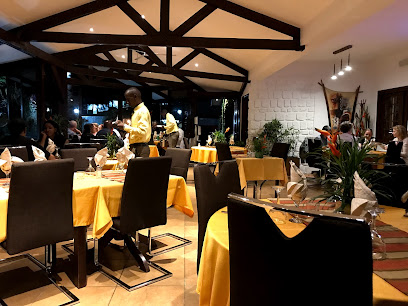
Le Plaisir du Gout
Experience the authentic flavors of Cameroon at Le Plaisir du Gout - where tradition meets taste in Kribi's charming seaside setting.
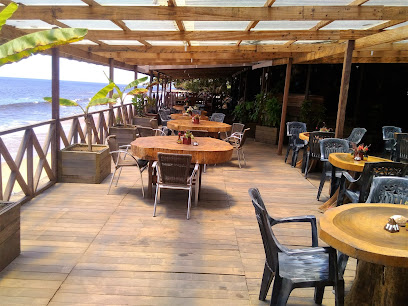
Big Bite
Experience local delicacies and international cuisine at Big Bite in Limbe—where every meal comes with stunning ocean views.
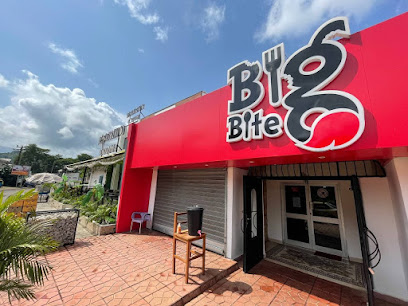
IYA Buea
Discover authentic Cameroonian cuisine at IYA Buea – where every meal tells a story of culture and flavor.
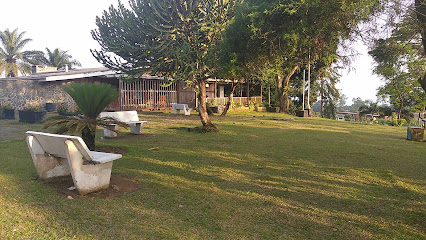
Bota S.S. Club
Experience authentic Cameroonian cuisine at Bota S.S. Club in Limbe, where flavor meets hospitality in a stunning coastal setting.
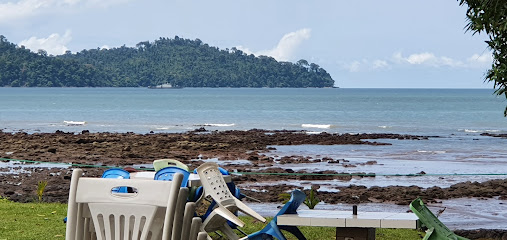
Sparkland Restaurant
Discover delightful flavors at Sparkland Restaurant in Buea - where local cuisine meets international flair in a cozy setting.
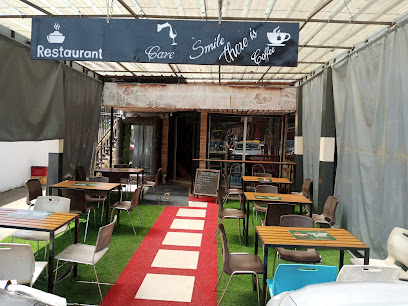
BIGGIE CHOPS
Experience authentic Cameroonian cuisine at Biggie Chops in Limbe - where local flavors meet international delights.
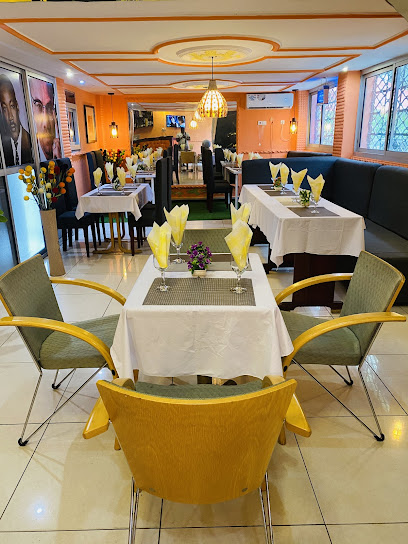
Black and White Limbe
Discover Black and White Limbe: A culinary gem offering exquisite dishes by day and vibrant nightlife by night in Cameroon.
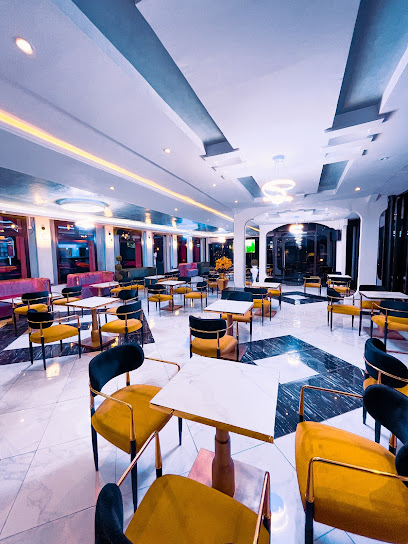
PIPO BEACH
Experience authentic Cameroonian cuisine at Pipo Beach in Douala with stunning seaside views.
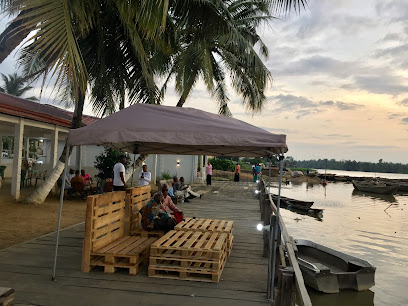
ARNE's Cafe
Discover the vibrant flavors of Cameroon at ARNE's Cafe in Limbe – where every meal tells a story.
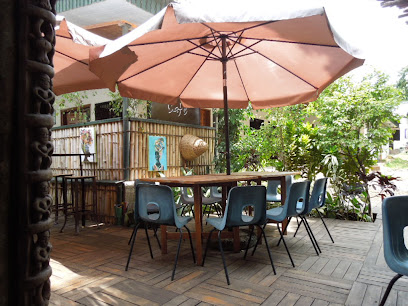
DADA Restaurant
Experience authentic Cameroonian flavors at DADA Restaurant in Limbe - a culinary haven for food lovers.
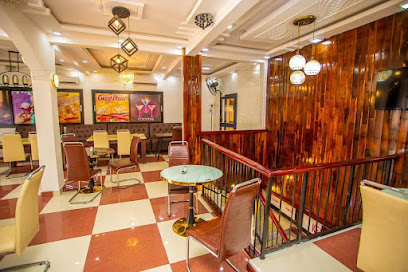
Mudongo Down beach
Experience the breathtaking beauty and delightful cuisine at Mudongo Down Beach in Bonabéri - a perfect getaway for every traveler.
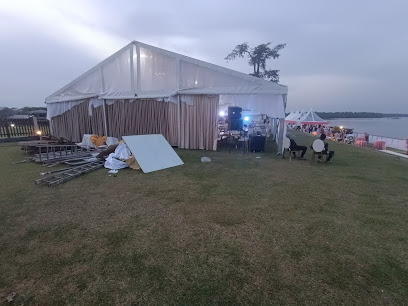
LA CENA Restaurant & Lounge
Discover the perfect blend of Cameroonian flavors and international cuisine at LA CENA Restaurant & Lounge in Buea.
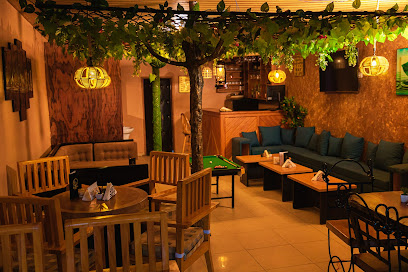
Markets, malls and hidden boutiques
Douala Grand Mall
Discover the vibrant shopping and dining experience at Douala Grand Mall, a must-visit destination in Cameroon for tourists and locals alike.

China Mall Ndokoti
Discover the best of Douala at China Mall Ndokoti, a shopping paradise with a wide array of local and international products.
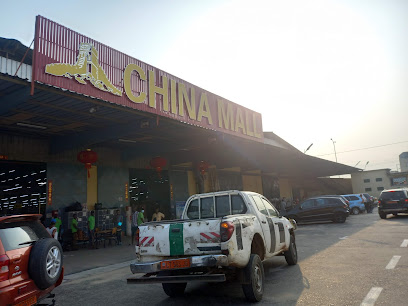
Carrefour NDOKOTTI juscard
Explore Carrefour NDOKOTTI in Douala for the latest electronics and an exciting shopping experience that showcases the heart of Cameroon's tech scene.
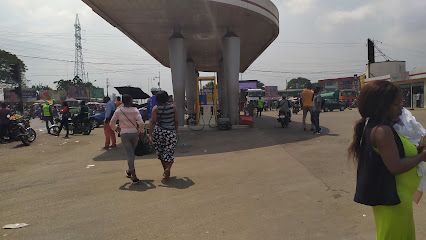
ORCA Yaoundé
Experience the best of shopping and entertainment at ORCA Yaoundé, the heart of retail in Cameroon’s capital.
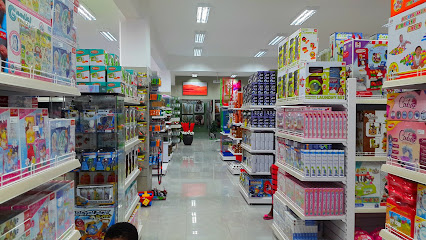
City Sport
Discover the best sportswear in Douala at City Sport, where quality meets originality and fitness takes center stage.
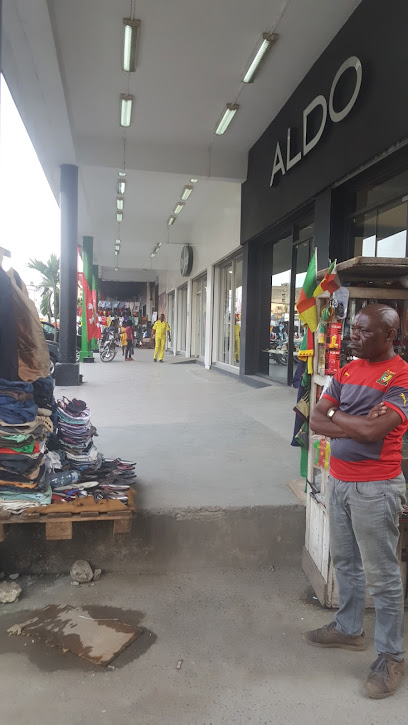
Kenza Market
Explore Kenza Market in Yaoundé for an unforgettable shopping experience featuring local delicacies, unique souvenirs, and a vibrant cultural atmosphere.
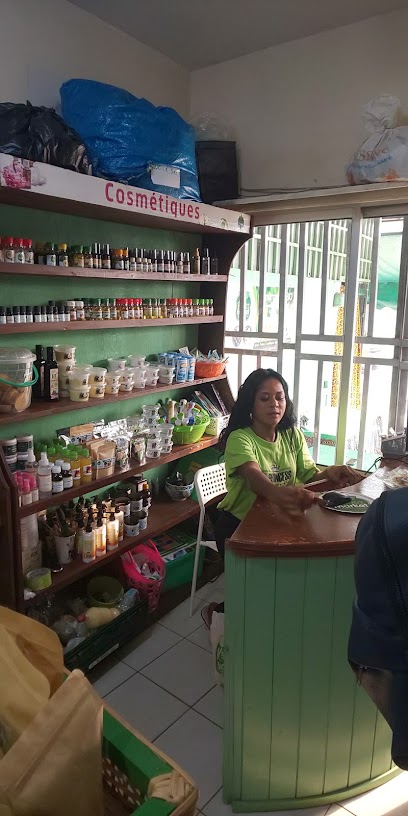
COGENI Beach
COGENI Beach: A Vibrant Coastal Escape in Douala, Blending Relaxation, Culture, and Adventure.
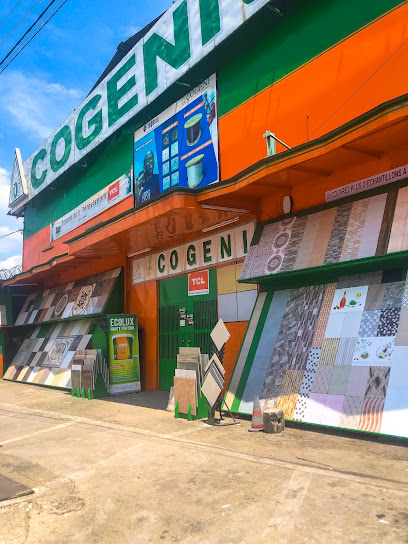
Fokou Beach
Experience the enchanting beauty and vibrant culture of Fokou Beach in Douala, a coastal paradise perfect for relaxation and adventure.
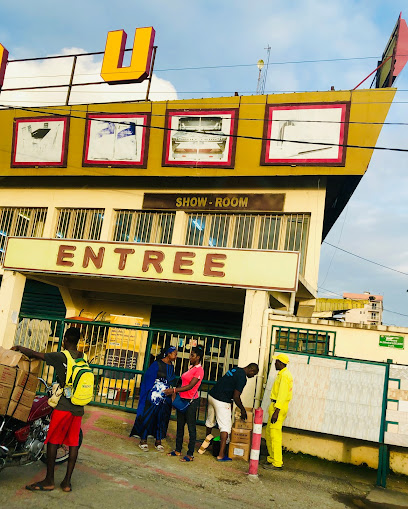
Blue Empire Holdings
Explore the latest in technology at Blue Empire Holdings, Buea's premier electronics store featuring a wide range of gadgets and exceptional service.
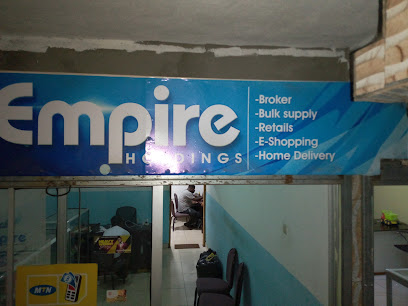
Carrefour Sélé
Explore Carrefour Sélé: A vibrant hypermarket in Cameroon offering fresh produce, local delicacies, and a unique shopping experience for every traveler.

Bois des Singes
Explore the unique home goods of Bois des Singes in Douala, where local craftsmanship meets modern design for the perfect souvenir.

PresCraft
Discover the vibrant craftsmanship of Cameroon at PresCraft, your go-to shopping destination in Bamenda for unique local souvenirs and handmade treasures.
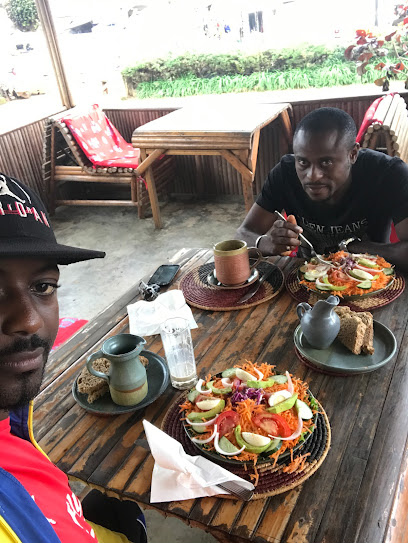
ALKO SARL
Explore ALKO SARL in Douala for all your hardware needs; a hub of tools and supplies for every project.
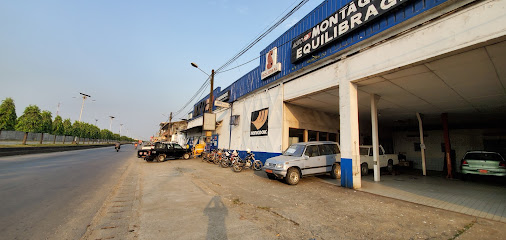
Wartzon
Explore Wartzon in Douala for a unique shopping experience with local crafts, fashion, and more, all in one vibrant department store.

Tecno Digital store
Discover the latest in technology at Tecno Digital Store, Douala's premier destination for electronics and gadgets.
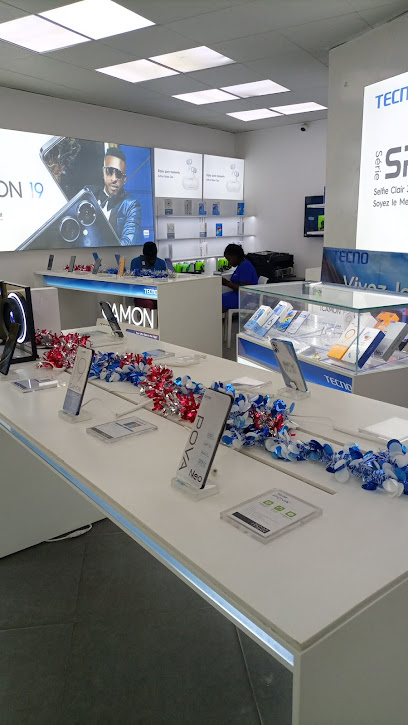
Essential bars & hidden hideouts
Black&White Douala
Experience Douala's nightlife at Black&White Douala, a stylish lounge with DJ services, billiards, and a vibrant atmosphere for every visitor.
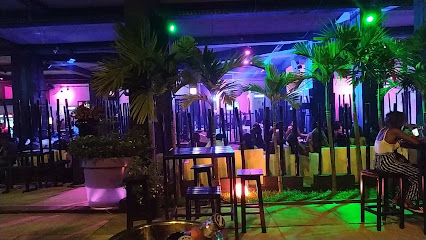
Black & White Sensation (Bastos)
Experience the vibrant nightlife of Yaoundé at Black & White Sensation, a stylish lounge offering exquisite drinks and a lively atmosphere.
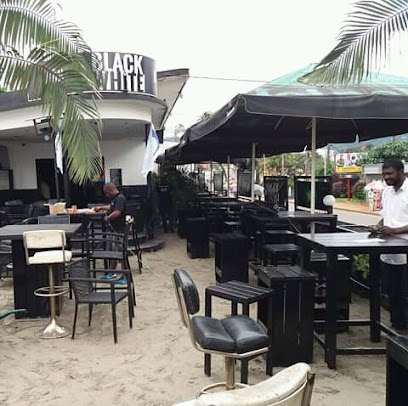
Bambou Lounge
Experience the pulsating energy and culinary delights at Bambou Lounge, Yaoundé's premier restaurant and bar destination.
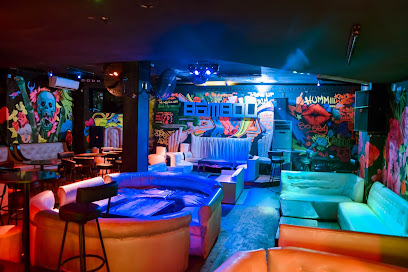
WANTED LOUNGE
Discover the vibrant nightlife of Douala at WANTED LOUNGE, a premier bar offering a lively atmosphere and creative cocktails.
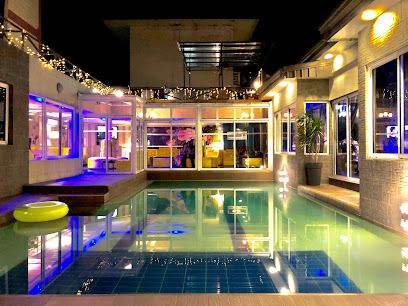
Black and White Limbe
Experience the vibrant nightlife and culinary delights at Black and White Limbe, the ultimate lounge destination in Cameroon.
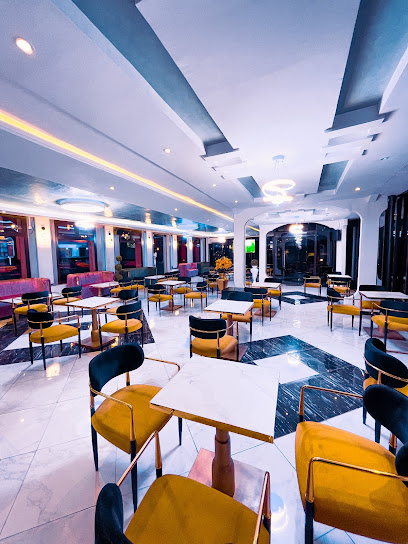
Panamera Lounge
Discover the vibrant nightlife of Douala at Panamera Lounge, where stylish ambiance meets exceptional cocktails and live entertainment.
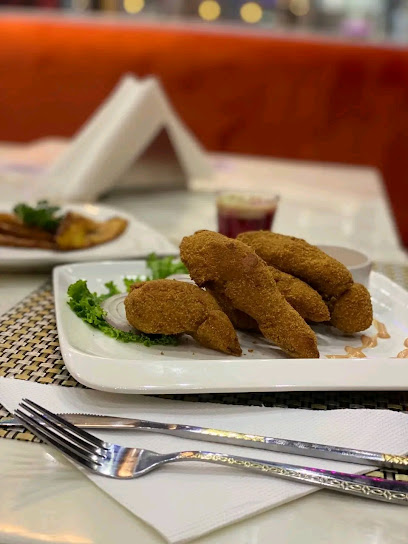
The Sky
Discover The Sky in Douala: the ultimate bar and lounge experience with exquisite cuisine, hookah, and vibrant sports entertainment.
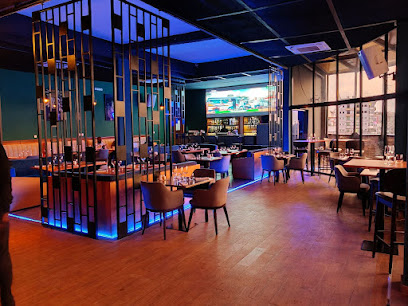
Salento Lounge Limbe
Discover the lively atmosphere of Salento Lounge Limbe, your go-to bar and lounge for relaxation and entertainment in Cameroon.
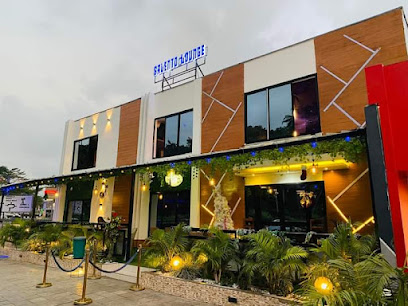
Apple Night Club
Discover Limbe's vibrant nightlife at Apple Night Club, where electrifying music and a lively atmosphere create unforgettable experiences.
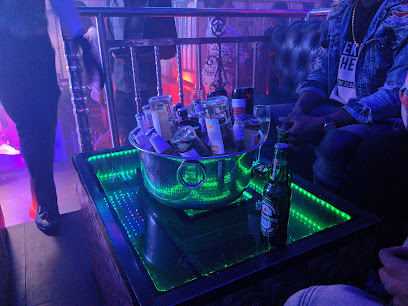
X-Bar Project
Discover the lively ambiance of X-Bar Project in Douala, where delicious food meets vibrant nightlife in a stylish lounge setting.
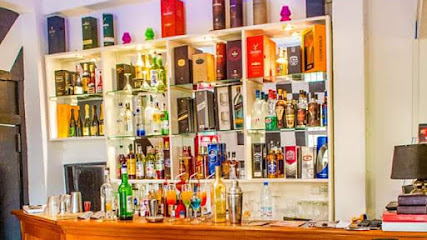
BARKUS HAPPY TIME
Experience the charm of Barkus Happy Time, Limbe's premier wine bar, offering a cozy atmosphere and an exquisite selection of wines.
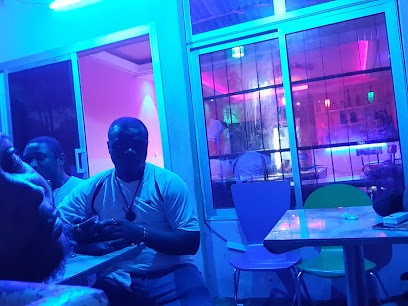
Makako Beach
Experience the vibrant atmosphere and breathtaking views at Makako Beach Bar in Douala, a perfect getaway for relaxation and fun.
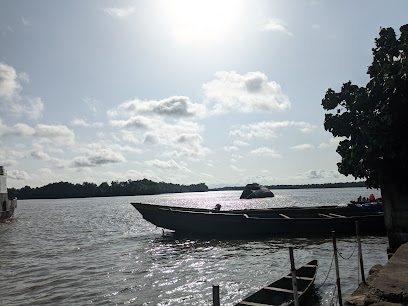
Down Beach Bar
Discover the lively atmosphere and delicious drinks at Down Beach Bar in Mutengene, a perfect spot for tourists to unwind and socialize.
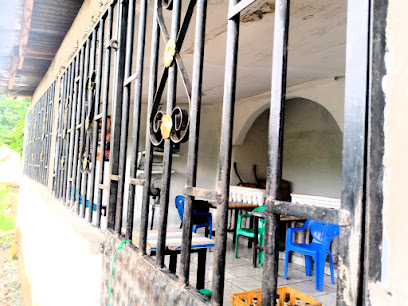
Toristic Snack Bar
Experience the vibrant ambiance and local flavors at Toristic Snack Bar in Tiko, a must-visit for every traveler.

Local Phrases about Tiko Beach
-
- HelloBongiorno
[bon-jor-no] - GoodbyeAdios
[a-dyos] - YesSí
[see] - NoNo
[no] - Please/You're welcomePor favor/De nada
[por fa-vor/de na-da] - Thank youGracias
[gra-syas] - Excuse me/SorryPerdón/Lo siento
[per-don/lo syen-to] - How are you?¿Cómo estás?
[ko-mo es-tas] - Fine. And you?Bien. ¿Y tú?
[byen. ee too] - Do you speak English?¿Hablas inglés?
[a-blas in-gles] - I don't understandNo entiendo
[no en-tyen-do]
- HelloBongiorno
-
- I'd like to see the menu, pleaseMe gustaría ver el menú, por favor
[me gus-ta-ria ver el me-noo, por fa-vor] - I don't eat meatNo como carne
[no ko-mo kar-ne] - Cheers!¡Salud!
[sa-lood] - I would like to pay, pleaseMe gustaría pagar, por favor
[me gus-ta-ria pa-gar, por fa-vor]
- I'd like to see the menu, pleaseMe gustaría ver el menú, por favor
-
- Help!¡Ayuda!
[ayu-da] - Go away!¡Vete!
[ve-te] - Call the Police!¡Llama a la policía!
[ya-ma a la po-li-sya] - Call a doctor!¡Llama a un médico!
[ya-ma a un me-di-ko] - I'm lostEstoy perdido
[es-toy per-di-do] - I'm illEstoy enfermo
[es-toy en-fer-mo]
- Help!¡Ayuda!
-
- I'd like to buy...Me gustaría comprar...
[me gus-ta-ria kom-prar] - I'm just lookingSolo estoy mirando
[so-lo es-toy mi-ran-do] - How much is it?¿Cuánto cuesta?
[kwan-to kwe-sta] - That's too expensiveEso es demasiado caro
[e-so es de-ma-sya-do ka-ro] - Can you lower the price?¿Puede bajar el precio?
[pwe-de ba-har el pre-syo]
- I'd like to buy...Me gustaría comprar...
-
- What time is it?¿Qué hora es?
[ke o-ra es] - It's one o'clockEs la una
[es la oo-na] - Half past (10)Las diez y media
[las dyeth ee me-dya] - MorningMañana
[ma-nyan-a] - AfternoonTarde
[tar-de] - EveningNoche
[no-che] - YesterdayAyer
[a-yer] - TodayHoy
[oy] - TomorrowMañana
[ma-nyan-a] - 1Uno
[oo-no] - 2Dos
[dos] - 3Tres
[tres] - 4Cuatro
[kwa-tro] - 5Cinco
[sin-ko] - 6Seis
[says] - 7Siete
[syet-te] - 8Ocho
[o-cho] - 9Nueve
[nwe-ve] - 10Diez
[dyeth]
- What time is it?¿Qué hora es?
-
- Where's a/the...?¿Dónde está...?
[don-de es-ta] - What's the address?¿Cuál es la dirección?
[kwal es la di-rek-syon] - Can you show me (on the map)?¿Puedes mostrarme (en el mapa)?
[pwe-des mos-trar-me (en el ma-pa)] - When's the next (bus)?¿Cuándo es el próximo (autobús)?
[kwan-do es el pro-ksi-mo (au-to-bus)] - A ticket (to ....)Un billete (a ....)
[un bi-ye-te (a)]
- Where's a/the...?¿Dónde está...?
History of Tiko Beach
-
In the late 19th century, Tiko Beach became a notable location during the German colonial period in Cameroon. The Germans established plantations and infrastructure in the region, which significantly impacted the local economy and culture. Many of the architectural styles and infrastructure remnants from this era can still be observed today, providing a glimpse into the colonial past of Tiko Beach.
-
After World War I, the Treaty of Versailles resulted in the transfer of German colonies to the League of Nations mandates. Tiko Beach, along with other parts of Cameroon, came under British administration. The British influence introduced new administrative structures and further developed the plantation economy. The town of Tiko became a hub for banana and rubber exports, shaping the socioeconomic landscape of the area.
-
During the mid-20th century, Tiko Beach emerged as an important trade hub due to its strategic coastal location. The construction of the Tiko Wharf facilitated maritime trade, connecting the region to international markets. This period saw increased economic activity and the influx of diverse cultures, contributing to the rich cultural tapestry of Tiko Beach.
-
Cameroon gained independence from colonial rule in 1960. In the post-colonial period, Tiko Beach experienced significant transformations. The government invested in infrastructure development and tourism, recognizing the potential of its scenic beaches and rich history. Efforts to preserve historical sites and promote cultural heritage have become a focal point for local and national authorities.
-
Today, Tiko Beach is celebrated for its vibrant culture and historical significance. The area hosts various cultural festivals and events that highlight the traditions of the local communities. Visitors to Tiko Beach can explore historical landmarks, enjoy the scenic beauty, and immerse themselves in the rich cultural experiences that the region offers. The blend of historical influences and modern developments makes Tiko Beach a unique destination for travelers.
Tiko Beach Essentials
-
Tiko Beach is located in the Southwest Region of Cameroon. The nearest international airport is Douala International Airport, approximately 70 kilometers away. From Douala, you can take a taxi or a bus to Tiko. The journey typically takes around 1.5 to 2 hours by road. Alternatively, you can arrange for a private transfer from the airport directly to Tiko Beach.
-
Once in Tiko, local taxis are the most common form of transport and are relatively inexpensive. Motorbike taxis, known locally as 'okadas', are also abundant and can be a quicker way to navigate through traffic. For longer distances, minibuses (bush taxis) connect Tiko to nearby towns and cities. Renting a car is another option, but be aware of local driving conditions and always carry your driver's license and identification.
-
The official currency in Cameroon is the Central African CFA Franc (XAF). Credit cards are accepted in some hotels and restaurants, but it is advisable to carry cash, especially in smaller establishments and local markets. ATMs are available in Tiko, but it is wise to withdraw sufficient cash in Douala before traveling to ensure you have enough funds. Small denominations are useful for daily transactions.
-
Tiko Beach is generally a safe destination for tourists, but it is important to take standard precautions. Avoid walking alone at night, particularly in poorly lit areas. Petty crimes such as pickpocketing can occur, especially in crowded places like markets. Stay vigilant and keep your belongings secure. The neighborhoods of Bonaberi and Bepanda in Douala are known for higher crime rates and are best avoided if possible.
-
In case of emergency, dial 112 for immediate assistance. The local police station and medical facilities are available in Tiko. It is recommended to have travel insurance that covers medical emergencies. For minor health issues, there are pharmacies in the town where you can purchase over-the-counter medications. Additionally, it is wise to carry a basic first aid kit.
-
Fashion: Do dress modestly, especially when visiting religious sites. Avoid wearing revealing clothing. Religion: Do respect local customs and traditions. Always cover your head when entering churches and mosques. Public Transport: Do be respectful and give up your seat to elderly passengers. Don’t eat or drink on public transport. Greetings: Do greet people with a handshake. A friendly 'Bonjour' or 'Bonsoir' is appreciated. Eating & Drinking: Do try local delicacies such as 'ndolé' and 'grilled fish'. Don’t refuse hospitality, as it is considered impolite.
-
To experience Tiko Beach like a local, visit the local markets where you can buy fresh produce and traditional Cameroonian goods. Engage with locals, as they are often friendly and willing to share stories about the area’s history and culture. Don't miss trying the local seafood, which is a highlight of the region. For a unique experience, take a boat trip to explore the nearby creeks and mangroves.
Trending Landmarks in Tiko Beach
-
CanalOlympia Bessengué
-
ONOMO Hotel Douala
-
Cameroon Reunification Monument
-
Bois Sainte Anastasie
-
Best Western Plus Soaho Douala Airport
-
Hotel Seme Beach Resort& Spa
-
Ayos Centre
-
Big Bite
-
Doual'art
-
ALCEF PARK
-
Mile 4 (Wututu Park)
-
Limbe Botanic Garden
-
Statue of Charles Atangana
-
Park Hotel Miramar
-
Musango Beach Hotel
Nearby Cities to Tiko Beach
-
Things To Do in Buea
-
Things To Do in Limbe
-
Things To Do in Douala
-
Things To Do in Malabo
-
Things To Do in Edea
-
Things To Do in Luba
-
Things To Do in Nkongsamba
-
Things To Do in Kribi
-
Things To Do in Calabar
-
Things To Do in Dschang
-
Things To Do in Mamfe
-
Things To Do in Uyo
-
Things To Do in Bafoussam
-
Things To Do in Mbouda
-
Things To Do in Bafia








